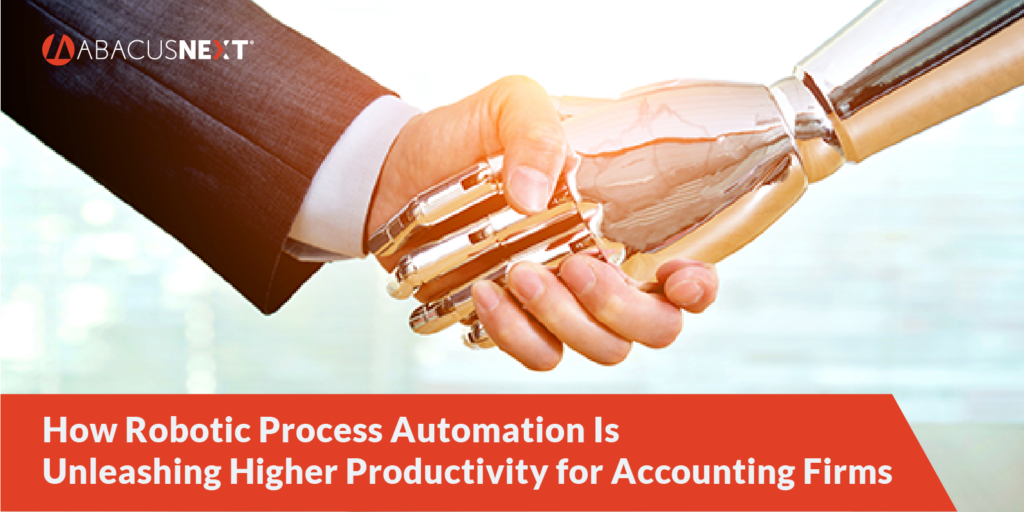How Robotic Process Automation Is Unleashing Higher Productivity for Accounting Firms


From satellite population mapping to writing poetry, sometimes it seems like there isn’t an industry artificial intelligence (AI) and digital automation haven’t touched. But what do these futuristic technologies look like when applied to specific technical fields, like accounting?
In what PwC is calling the 4th Industrial Revolution, accounting companies are using AI tools like robotic process automation to automate business processes with software robots or artificial intelligence workers that can be programmed to do mundane, repetitive tasks. Unlike machine learning, which learns new things over time, robotic process automation simply replicates an action or formula in a repeatable way.
For accounting firms, this translates to lower overhead costs because robotic process automation can take on a lot of the “busy work” typically reserved for untrained employees, as well as a few other surprising benefits.
Here are three examples of how some accounting teams are using robotic process automation to increase productivity and profitability in their firms – and why you need to be thinking about it for your firm.
- Reducing errors with robotic process automation
Angelo Poulikakos, a managing director at consulting firm Protiviti, notes any process that is high-transaction, repeatable, well-structured, and rules-based is a process that can benefit from robotic process automation. That’s why some firms are using robotic process automation to reduce errors in data entry and reporting. For example, according to a 2017 Deloitte report, robotic process automation bots helped the DHL Supply Chain accounting team build consistent and reliable compliance and internal controls process. Additionally, 90% of survey respondents in the same report indicated the robotic process automation implementation met or exceeded their expectations for improved quality and accuracy.
- Robotic Process Automation to Grow Your Business
In one Journal of Accountancy interview, Omar Siddiqui, founder of accountancy firm Reddy Siddiqui, said he uses the AI tool Runagood to review financial information, customer activity, and IT and software usage. With Runagood, he can compare the results to Siddiqui’s business goals. The report that benchmarks his business against other high-performers in the UK and provides unique recommendations for how he can improve his business and better connect with customers.
- Streamlining Research With Robotic Process Automation
EY, a Big Four accountancy firm, applies robotic process automation to the lease accounting process. The Journal of Accountancy reports the firm uses AI to identify relevant clauses within contracts, capture data, and flag for review in the case of errors or inconsistencies. Another large tax firm, PwC, created its own AI software to review its customers’ general business ledgers and identify irregularities. In both cases, this frees up specialized, high-performance associates to do work like improving their skillsets, training, and building relationships with customers.
A recent survey showed an overwhelming 89% of financial professionals surveyed have not yet used an AI tool in their work. As you take this in, realize you don’t have to use every application of AI to see benefits to your bottom line. Consider these examples in the context of your own accounting firm to see if you could distribute any of your manual, repetitive tasks to robotic process automation and free up your team to work on more profitable tasks.